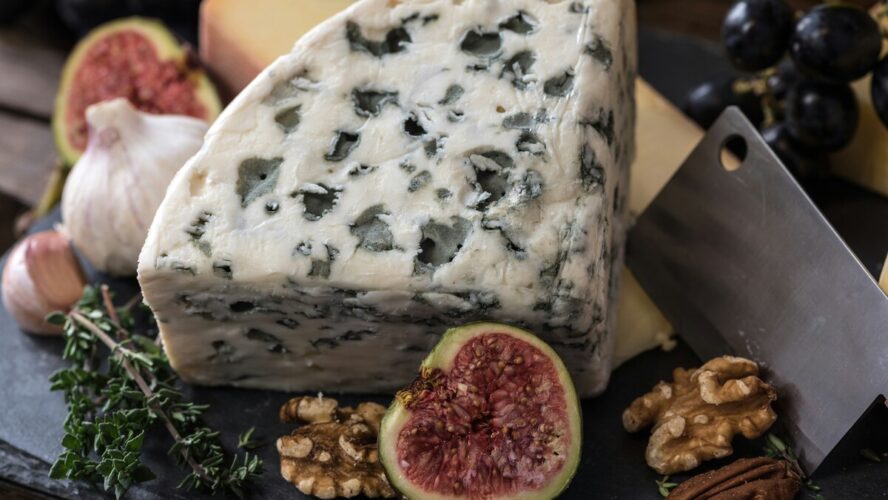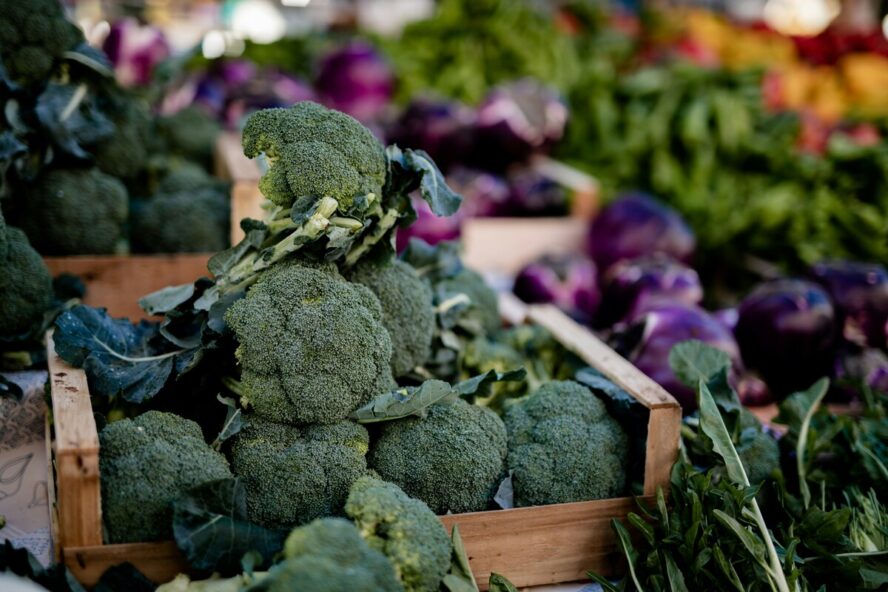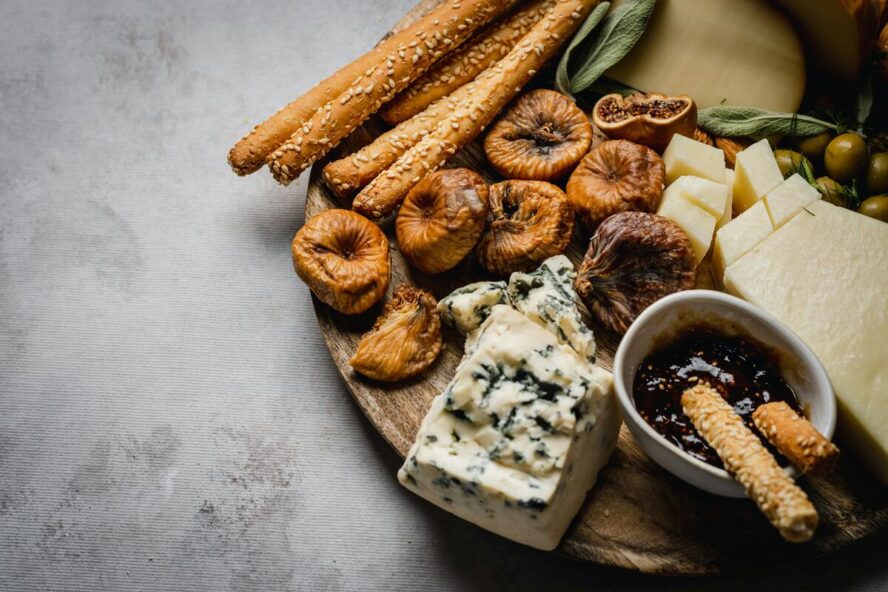Is Blue Cheese Good for You? The Benefits of a Compound Called Spermidine
Blue cheese is one of the best sources of spermidine, a powerful polyamine linked to longevity.

Blue cheese is one of those polarizing foods that you either love or hate, like cilantro or Hawaiian pizza. If you’re in the “hate it” camp, this article might not be for you. But if you’re a big fan, we’ve got good news!
According to a recent study published in Nature Cell Biology, this stinky spread might be healthier for you than previously thought due to one naturally occurring compound found in blue cheese1. Researchers have linked the polyamine spermidine to autophagy enhancement (essentially the regrowth of cells!) and reduced incidence of cardiovascular and neurodegenerative diseases — and blue cheese is positively loaded with it.
What Is Spermidine?
Spermidine is a polyamine known for its link to longevity, though we’re only just starting to understand the mechanisms by which it works in mammals. For Dr. Pete Sulack, founder of The Be Resilient Program, spermidine’s power lies in its ability to promote autophagy, the body’s natural process of cellular regeneration.
And that’s not all. Dr. Sulack also says that spermidine has also been shown to improve mitochondrial function, reduce inflammation, support immune defense, and even extend lifespan. He goes so far as to characterize spermidine as “one of the most promising longevity compounds in food.”
Want to learn more about the health benefits of various foods? Sign up for the newsletter for more well-researched, non-toxic living guidance and smart wellness advice.
The Research Behind Spermidine Benefits

The research supports these claims. A 2017 study found that spermidine could reduce the risk of liver fibrosis and cancerous liver tumors2. A 2021 research review in Aging and Disease revealed that spermidine could prove promising in treating age-related neurodegenerative, metabolic, musculoskeletal, and immune diseases3, and a 2023 study in Scientific Reports found that spermidine could reduce age-related angiogenic decline4.
But Lena Bakovic, MS, RDN, CNSC at Vnutrition, is a bit more cautious with her praise of the polyamine. “Spermidine has been studied for anti-aging properties and in providing benefits to cellular health, in turn because it may help to support autophagy (our bodies’ process of destroying damaged cells),” she says. “However, thus far, these effects have only been demonstrated in limited and rather weak scientific research. More research is unquestionably required in helping to confirm the potential health benefits of spermidine.”
Indeed, previous studies have had difficulty showing how we can take full advantage of these natural benefits of spermidine. A 2022 randomized clinical trial in Neurology showed that 12-month spermidine supplementation had no significant beneficial effect on memory performance as compared with a placebo5. But a 2018 study in the American Journal of Clinical Nutrition saw a decrease in all-cause mortality associated with increased spermidine intake from food sources6.
The new study in Nature Cell Biology only adds to the growing evidence in favor of spermidine benefits. The researchers found that spermidine could improve the cardioprotective and anti-arthritic benefits of intermittent fasting and calorie restriction7.
Good Natural Sources of Spermidine
There are several foods with spermidine out there, including legumes like soybeans, peas, and lentils, cruciferous vegetables like broccoli and cauliflower, and fermented foods like miso and cheese.

“This could be part of why the Mediterranean diet is so successful in helping prevent heart disease, metabolic syndrome, and other anti-inflammatory or aging processes,” explains Dr. Serena Goldstein, ND, “due to the amount of foods it generally contains that are high in spermidine.”
While all cheese has some spermidine, longer-aged ones like Manchego and Gruyère tend to be richer in the polyamine. And blue cheese specifically has been found to contain a whopping 1.5 mg of the compound per 100 gram serving, nearly double the amount found in fermented soybeans like natto. “Blue cheese is one of the richest natural food sources,” says Sulack, “making it a unique and flavorful way to support long-term health when tolerated well.”
As for which blue cheeses to choose, the more aged the cheese, the better. “Blue Stilton, in particular, has been singled out in lab tests as exceptionally high [in spermidine],” he says. He also identified French Roquefort and Italian Gorgonzola as other great sources.
“The fermentation process used to age these cheeses increases their spermidine content, which is why they stand out compared to younger or less fermented varieties,” he says.
Other Health Benefits of Blue Cheese
Spermidine aside, cheese can be part of a healthy diet. While blue cheese might not seem like a health food, Sulack says it’s more nuanced than that. So is blue cheese good for you?
“I believe the reputation of cheese depends entirely on context and quality,” he says. “Yes, processed cheese products loaded with additives deserve criticism. But traditional cheeses, especially raw, grass-fed, or fermented varieties, can offer real nutritional value. They’re rich in protein, calcium, vitamin K2, and even probiotics.”
Bakovic agrees. “Cheese, in general, often gets a ‘bad’ rep due to its’ saturated fat content and the assumption that it contains higher amounts of dietary sodium,” she says. But moderation is the key to reaping the benefits without absorbing any downsides.
“It is not inherently ‘bad,’” Bakovic continues. “The consumption of cheese in excess, or routinely choosing highly-processed cheese products, however, has been associated with negative impacts to chronic disease risk factors, including heart disease as one example.”
But if you choose good-quality blue cheeses and consume it in moderation, you’ll open the door to a wide range of health benefits linked to its richness in calcium and probiotics. Sulack cites a 2012 study in Medical Hypotheses showcasing the anti-inflammatory benefits of French Roquefort specifically, notably with regards to the protection of arterial walls and the promotion of tissue regeneration8.
“This may help explain the ‘French paradox,’ where rates of cardiovascular disease remain low despite a rich diet,” he explains. “Blue cheese also supports gut health through natural probiotics, and it provides calcium and vitamin K2, which are essential for bone strength.”
Don’t Break Your Dairy Rules for Blue Cheese

Despite these benefits, it’s fair to say blue cheese might not be for everyone. Yes, the bitter, intense flavor of blue cheese is tough for some to swallow. But Goldstein also notes a preponderance of intolerances and allergies — not just to blue cheese, but to dairy in general. And the blue cheese benefits aren’t worth suffering over any intolerances.
“Symptom-wise, when people have given up dairy, I have seen them lose weight, regulate their gut health, have decreased acne, rashes, and feel more level-headed,” she says. “However, I also believe there’s a cultural piece (i.e. some cultures tolerate it better than others), how it’s consumed (i.e. in a calm environment, in moderation), how it’s made (especially outside of the U.S. where there tends to be more manufactured processes versus fresh, and unprocessed).”
Still, if it’s to your taste and your system tolerates it, blue cheese is a great option to add to a healthy, balanced diet. “As always, food should be personalized,” says Sulack. “But in the right context, blue cheese isn’t just a culinary indulgence, it’s a functional food.”
Meal Ideas with Blue Cheese
- Nectarine Flatbread Pizza with Walnut Pesto, Balsamic Reduction, and Blue Cheese
- Rosemary-Blue Cheese Polenta Recipe with Easy Lemon Aioli
- Blue Cheese Cabernet Organic Hamburgers
Read More on Organic Authority
Sources:
- https://www.nature.com/articles/s41556-024-01468-x
- https://www.sciencedaily.com/releases/2017/04/170421091816.htm
- https://pmc.ncbi.nlm.nih.gov/articles/PMC8612618/#sec14
- https://www.nature.com/articles/s41598-023-35447-3
- https://jamanetwork.com/journals/jamanetworkopen/fullarticle/2792725
- https://ajcn.nutrition.org/article/S0002-9165(22)02930-6/fulltext
- https://www.nature.com/articles/s41556-024-01468-x
- https://www.sciencedirect.com/science/article/abs/pii/S0306987712003854

